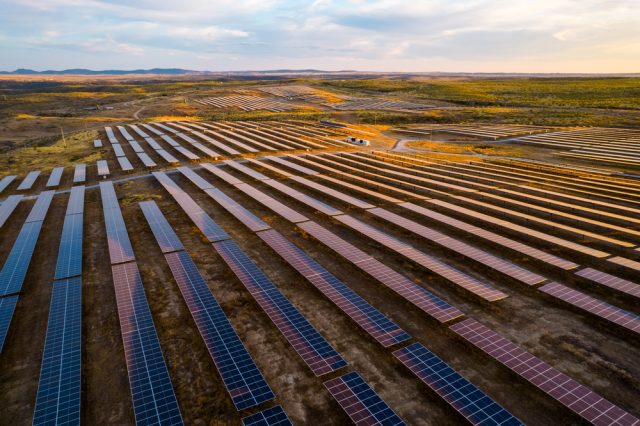
The energy transition toward a greener Europe has been a recurring theme in political and economic debates in recent years. However, the path to greater reliance on renewable energy, particularly offshore wind power, is fraught with challenges that, if not addressed pragmatically, could jeopardize the economic and social stability of member states. Therefore, it is essential to question some of the assumptions underlying this transition and advocate for an approach that prioritizes energy sovereignty, economic efficiency, and citizens’ well-being.
Europe has committed to achieving climate neutrality by 2050, with ambitious intermediate milestones such as the installation of 20 GW of offshore wind power by 2025. This goal, while laudable from an environmental perspective, faces significant barriers in terms of regulation, investment, and social acceptance.
Technological dependence and threats to sovereignty
One issue that cannot be overlooked is Europe’s growing dependence on third countries for the supply of critical technologies and materials. The manufacturing of wind turbines and related components is dominated by a handful of companies, many of which operate outside the European Union. This poses significant risks to the continent’s energy sovereignty, especially in an increasingly volatile geopolitical context.
Furthermore, reliance on raw materials such as rare earth elements and strategic metals—most of which are extracted in countries with low environmental and labor standards—contradicts the values Europe aims to uphold.
The implementation of offshore wind energy projects also faces resistance from coastal communities and traditional sectors like fishing. Offshore wind farms, though less visible than their onshore counterparts, impact the maritime landscape and can negatively affect local ecosystems. In a country like Spain, where fishing is an economic pillar in many coastal regions, this tension cannot be ignored.
Engaging in dialogue with affected communities must be a priority, but it is also necessary to acknowledge that not all costs can be compensated. Protecting traditional sectors and ensuring that any renewable energy project is implemented in a way that respects local traditions and economies are essential.
Financial impact on citizens
Another issue deserving attention is the financial impact of this transition on citizens. The initial costs of developing offshore wind infrastructure are significantly high, raising real concerns that these expenses could translate into higher energy bills. In a context of inflation and economic crisis, this could exacerbate energy poverty for millions of Europeans.
From this perspective, policies should focus on ensuring that the energy transition is financially sustainable. This means avoiding permanent subsidies or imposing disproportionate burdens on working families. The priority must be to develop energy solutions that are both environmentally friendly and economically viable.
The need for a common sense approach
The transition to renewable energy is undoubtedly a lofty goal that presents interesting opportunities for business and growth across the Union. However, it is important to adopt a realistic approach that does not sacrifice economic stability or national sovereignty in the name of achieving overly ambitious climate targets. Europe’s energy strategy must focus on diversifying energy sources, promoting research and development of indigenous technologies, and ensuring that the transition is equitable for all citizens.
Rather than relying exclusively on offshore wind or any single technology, it is necessary to maintain an energy mix that includes traditional sources like nuclear, which offers clean and stable energy, while exploring alternatives such as green hydrogen. Only then can Europe ensure an energy-secure, prosperous, and value-driven future.
Thus, Europe faces significant challenges on its path to a sustainable energy transition. While offshore wind energy has a role to play, it is crucial that this transition is approached with pragmatism and a long-term vision that prioritizes sovereignty, efficiency, and the well-being of all Europeans.



 Subscribe
Subscribe